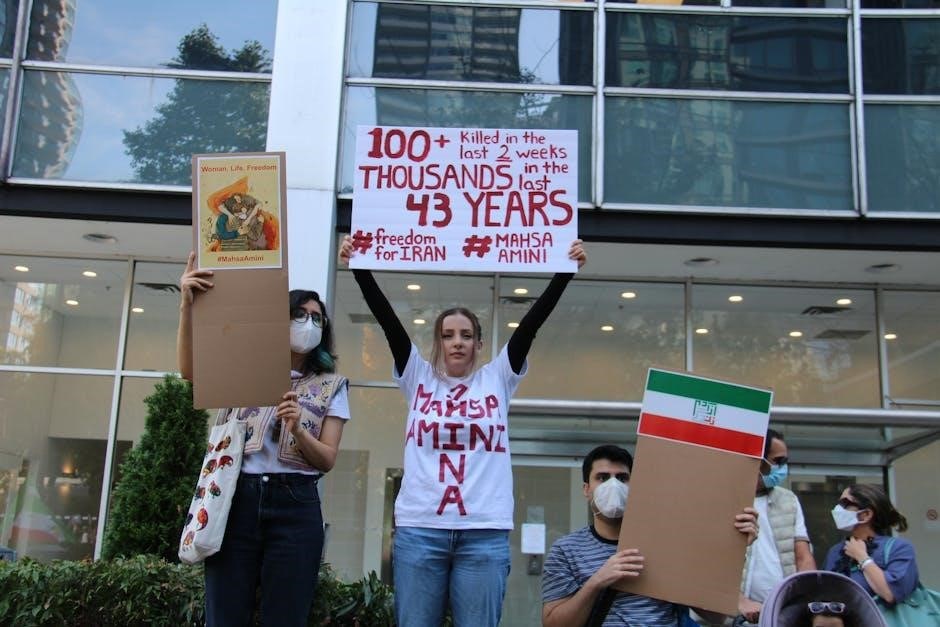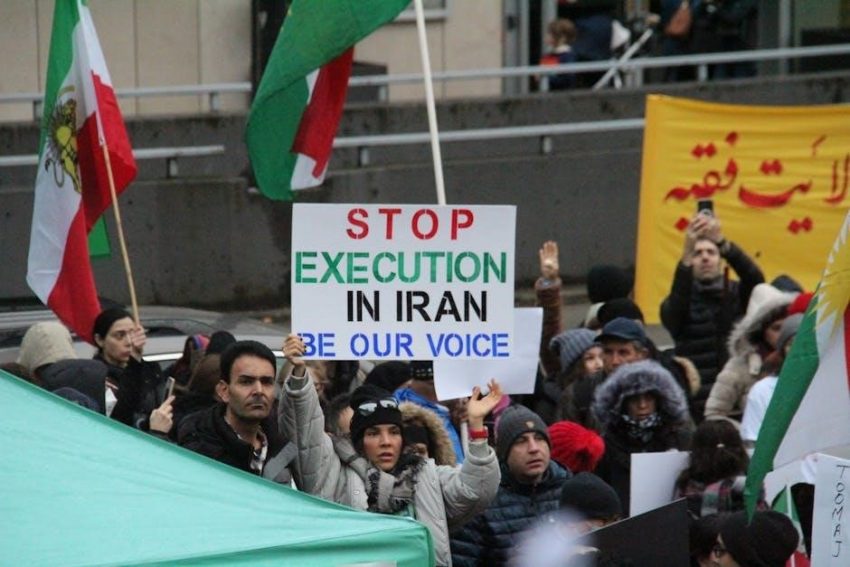The Club of Rome, a global think tank, published The First Global Revolution in 1991, co-authored by Alexander King and Bertrand Schneider. It emphasizes the need for global governance and sustainable development, addressing challenges like energy crises and economic transitions, influencing policy and research worldwide.
Authors Alexander King and Bertrand Schneider
Alexander King and Bertrand Schneider, renowned figures in global governance, co-authored The First Global Revolution. King, as President Emeritus of the Club of Rome, brought deep insights into global challenges, while Schneider, serving as Secretary General, provided strategic vision. Their collaboration in the 1991 publication highlights their expertise in addressing critical issues like energy crises, arms races, and economic transitions. The book underscores the need for a shift from military to civil economies and emphasizes cultural identity in globalization. Their work has significantly influenced global policy and research, offering a roadmap for sustainable development and international cooperation. Their contributions remain pivotal in understanding modern global dynamics.
The Club of Rome’s Mission and Influence
The Club of Rome is a non-profit organization focused on addressing global challenges through research and analysis. Its mission revolves around fostering a sustainable future by exploring complex interconnections between economic, social, and environmental systems. The club’s influence is evident in its ability to bring together experts from diverse fields to tackle pressing issues. The First Global Revolution exemplifies this mission by advocating for systemic change and global governance. The club’s work has inspired policy reforms and academic research, positioning it as a key player in shaping international agendas. Its holistic approach continues to influence global decision-making, emphasizing the need for collective action to address humanity’s most urgent challenges.

Key Themes and Messages
The First Global Revolution highlights urgent global challenges, emphasizing the need for sustainable development, economic transitions, and cultural identity preservation in a rapidly changing world.
The Need for Global Governance
The First Global Revolution underscores the urgent need for global governance to address interconnected challenges like energy crises, environmental degradation, and economic instability. The Club of Rome advocates for a coordinated international approach to manage these issues, emphasizing that national sovereignty must adapt to global interconnectedness. The book highlights how fragmentation and competition among nations exacerbate problems, calling for a shift toward collective action and shared responsibility. By proposing systemic changes, it aims to create a framework where global governance ensures equitable and sustainable solutions, balancing human needs with planetary limits. This vision is central to the Club of Rome’s mission to foster a unified response to global challenges.
Transitioning to a Civil Economy
The First Global Revolution emphasizes the critical need to shift from a military-driven economy to a civil economy focused on sustainable development. The book critiques the dominance of military spending and industrial complexes, arguing that these divert resources from essential human needs. By transitioning to a civil economy, societies can prioritize education, healthcare, and environmental restoration, fostering long-term stability and equity. This shift requires systemic changes, including policy reforms and international cooperation, to redefine economic priorities and ensure resources are allocated for the common good. The Club of Rome advocates for this transition as a cornerstone of its vision for a more equitable and sustainable global future.
Cultural Identity in a Globalized World
The First Global Revolution explores the tension between cultural identity and globalization, highlighting how global interconnectedness challenges traditional identities. The book emphasizes the need to preserve cultural diversity while fostering global unity, arguing that cultural homogenization risks eroding unique traditions and values. It advocates for a balanced approach, where globalization does not undermine local cultures but enriches them through mutual understanding. The authors stress the importance of education and dialogue in maintaining cultural identity amidst global integration, ensuring that diverse perspectives contribute to a cohesive global society. This theme remains central to addressing modern challenges of cultural preservation in an increasingly interconnected world.

Global Challenges Addressed
The First Global Revolution addresses societal and economic challenges, emphasizing the need for sustainable transformations and cultural preservation in a globalized world.
Energy Crisis and Environmental Concerns

The First Global Revolution highlights the pressing energy crisis and environmental degradation as critical global challenges. It emphasizes the urgent need for sustainable solutions to address resource depletion and pollution. The book underscores the interconnectedness of energy consumption, economic systems, and environmental health, advocating for a transition from fossil fuels to renewable energy sources. It also explores the implications of environmental neglect on global stability and human well-being. By addressing these issues, the report calls for a paradigm shift in how societies approach energy production and consumption, aligning economic development with ecological preservation to ensure a sustainable future for all.
The Arms Race and Its Implications
The First Global Revolution critically examines the arms race, highlighting its devastating implications for global security and economic stability. The report emphasizes how the relentless pursuit of military superiority diverts resources away from essential civil sectors, exacerbating inequality and hindering sustainable development. It warns that the arms race not only fuels geopolitical tensions but also perpetuates a cycle of mistrust and conflict. The authors argue for a shift in priorities, advocating for disarmament and international cooperation to address common challenges. By reducing military spending, societies can allocate resources to pressing issues like energy crises and environmental degradation, fostering a more peaceful and equitable world order.

Economic Shifts and Transitions
The First Global Revolution discusses transitioning from military to civil economies, reallocating resources to sustainable development, and the role of superstar firms in global governance.
Moving from Military to Civil Economy
The First Global Revolution highlights the urgent need to shift resources from military spending to civil sectors, fostering sustainable development and global stability. By reallocating funds, nations can address environmental crises, reduce arms race tensions, and invest in education, healthcare, and innovation. This transition aims to create a more equitable and peaceful world, emphasizing the importance of cooperation over conflict. The book underscores that such a shift is not only economically viable but morally imperative to ensure a prosperous future for all generations. This vision aligns with the Club of Rome’s mission to promote systemic change for global sustainability.
The Role of Superstar Firms in Export Markets
Superstar firms play a dominant role in shaping global export markets, driving innovation and competition. These firms concentrates economic power, influencing trade dynamics and market structures. Their dominance often leads to reduced competition and increased inequality. However, they also foster technological advancement and efficiency. The First Global Revolution highlights the need for policies that balance their influence with fair market practices. Addressing their impact is crucial for achieving sustainable and equitable global economic growth. Their role underscores the complexities of modern trade systems, emphasizing the need for regulatory frameworks to ensure fair opportunities for all market participants.

Historical Context

The First Global Revolution is set against the backdrop of the 1968 global upheavals and the post-war economic boom, framing its analysis of societal shifts.
1968 as a Turning Point
The year 1968 marked a pivotal moment in global history, symbolizing the end of the post-war economic boom and the rise of widespread social and political upheaval. It was a time of significant protests, civil rights movements, and growing environmental awareness, which collectively challenged existing power structures. The Club of Rome’s analysis in The First Global Revolution highlights 1968 as a catalyst for rethinking global priorities, emphasizing the need to address issues like energy crises and the arms race. This period of transformation laid the groundwork for discussions on sustainable development and global governance, reshaping the way societies viewed their future and interconnected challenges.
The Post-War Economic Growth Period

The post-war era following World War II was characterized by unprecedented economic growth in industrialized nations. This period of prosperity, often referred to as the “Golden Age of Capitalism,” saw rapid technological advancements and increased global trade. However, as highlighted in The First Global Revolution, this growth was not sustainable and led to significant resource depletion and environmental degradation. The Club of Rome’s analysis points out that the post-war boom masked underlying structural issues, such as inequality and over-reliance on fossil fuels. By the late 1960s, these challenges became apparent, marking the end of this growth period and signaling the need for a new economic paradigm to address global disparities and ecological limits.

Impact and Reception
The First Global Revolution significantly influenced global policy and research, offering critical insights into economic and environmental challenges. Its findings remain relevant today.
Initial Reception and Criticism
The publication of The First Global Revolution in 1991 sparked significant debate and mixed reactions. Critics praised its visionary approach to global challenges, while others deemed its warnings alarmist. The book’s emphasis on transitioning from a military to a civil economy resonated with many, yet its radical proposals drew skepticism. Despite criticism, the report’s detailed analysis of energy crises and economic shifts garnered attention from policymakers and scholars. Its influence on global policy discussions, particularly regarding sustainability, was notable. However, some argued its solutions were overly ambitious, leading to controversy. Overall, the book became a landmark in global governance debates.
Influence on Global Policy and Research
The First Global Revolution significantly impacted global policy and research by highlighting pressing issues like energy crises and economic transitions. Its call for a shift from a military to a civil economy inspired new approaches in sustainable development. The report’s emphasis on global governance encouraged international collaborations and influenced environmental policies. Researchers adopted its framework for analyzing interconnected economic and environmental challenges, leading to innovative solutions. The book also spurred discussions on cultural identity in globalization, shaping academic studies. Its influence extended to the Club of Rome’s future initiatives, solidifying its role as a thought leader in addressing global challenges. This legacy continues to inform modern policy-making and research.
Relevance in the Modern World
The First Global Revolution remains relevant today, addressing current global challenges like environmental crises and economic inequality. Its themes of sustainable development and global cooperation continue to resonate strongly.
Current Global Issues
The First Global Revolution highlights pressing issues like energy crises, environmental degradation, and economic inequality, which remain critical today. The book emphasizes the urgency of transitioning from a military to a civil economy, a challenge still relevant amid modern geopolitical tensions. It also explores cultural identity in globalization, a topic increasingly complex due to migration and technological interconnectedness. The rise of superstar firms dominating export markets, as discussed, reflects current debates on economic concentration and global trade imbalances. These themes underscore the book’s timeless relevance, offering insights into addressing contemporary challenges through sustainable development and global cooperation.
Lessons from The First Global Revolution
The First Global Revolution offers profound lessons on addressing global challenges through collective action and sustainable development. The book underscores the importance of transitioning from a military-driven economy to one focused on civil needs, emphasizing the need for resource redistribution and environmental stewardship. It highlights the interconnectedness of global issues, such as energy crises and cultural identity, urging a holistic approach to problem-solving. The authors advocate for equitable economic systems and international cooperation to combat inequality and environmental degradation. These lessons remain highly relevant today, providing a framework for tackling modern challenges like climate change and economic disparities. The book’s emphasis on long-term thinking inspires future generations to prioritize sustainability and equity in global governance.
The First Global Revolution concludes with a call to action, urging global unity and sustainable practices to address pressing challenges, inspiring future generations to prioritize collective well-being.

The First Global Revolution by Alexander King and Bertrand Schneider is a seminal work that highlights critical global challenges, emphasizing the need for sustainable development and collective action. It explores themes such as energy crises, economic transitions, and cultural identity, offering insights into the interconnectedness of global issues. The book serves as a call to action, urging nations to adopt a civil economy and reduce military spending. Its analysis of global governance and environmental concerns remains highly relevant today, influencing policy and research. By addressing these pressing matters, the book underscores the urgency of unity and innovation to ensure a sustainable future for all generations.
Call to Action for Future Generations
The First Global Revolution urges future generations to take immediate action to address global challenges and create a sustainable future. It emphasizes the need for unity, innovation, and ethical leadership to tackle energy crises, reduce military spending, and transition to a civil economy. The book calls for a shift in priorities, prioritizing environmental stewardship and equitable development over short-term gains; By fostering global governance and cultural understanding, future generations can build a world that balances progress with sustainability. This call to action serves as a blueprint for transformative change, inspiring leaders to act responsibly and collaboratively for the benefit of all humanity.

